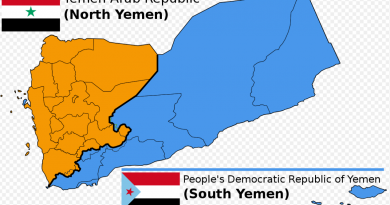Focus on Modern Piracy: Online Piracy
By Gabrielle Goldworm
Staff Writer
In the years since computer scientist Tim-Burners Lee created the “World Wide Web” in 1990, online piracy has been on the rise, ranging from the simple film or music piracy that people around the world regularly indulge in, to data piracy by powerful states collecting massive caches of documents, emails, and analytics data from their rivals. According to Variety, 2017 saw over 300 billion visits to online piracy sites worldwide, up 1.6% from 2016.
As seen with the rise of services like Disney +, CBS All Access, YouTube Red, and others like them, the current trend towards “a streaming service for everyone” has outlets like New York Magazine speculating that any piracy lessened by the streaming era is now looking at a massive comeback.
Online piracy may be most associated with finding the newest episodes of the year’s hottest shows, but its connection to international affairs, global networks of organized crime, and even terrorism have become clearer in the last several decades. In a 2009 report on online piracy’s connection to larger networks of international crime, Rand Corporation argues that because online piracy has high profits, low barriers to entry and comparatively low risk, it is a prime way to fund more serious criminal activities.
The report draws connections between groups like the Barakat Network, who use funds from piracy alongside others to raise substantial money for Hezbollah. Overall, the report examines 17 cases, all of which engaged in piracy alongside more serious crimes, including human smuggling, contract killing, narcotics trafficking, and money laundering.
This proposed connection appears in more recent cases as well. In December 2019, the United States Justice Department investigated the founder of Sci-Hub, a website that provides access to academic papers that often otherwise required expensive subscription fees to access.
Alexandra Elbakyan, whose supporters refer to her as “The Robin Hood of Science”, was accused of being a Russian Intelligence asset who used her substantial hacking skills to get her hands on massive caches of academic literature. According to a report by The Washington Post, Senior US Intelligence officials claimed Elbakyan was working alongside GRU, the intelligence arm of the Russian military, a claim which Elbakyan herself denied.
While the investigation into Elbakyan and her connections is still ongoing, it displays just how far-reaching online piracy can be. Another case concerning the Mitsubishi Electric company in Japan also occurred in 2019, when a Chinese group allegedly hit the company with a “massive” cyber-attack, gaining personal information on some 8,000 individuals, including “email exchanges with the Defense Ministry and Nuclear Regulation Authority”, according to the Japan Times.
This demonstrates the potential for online piracy to effect much more than the bottom line for media distribution companies. The full extent of the effect online piracy has and will continue to have on international crime and international relations between states is still unknown.



